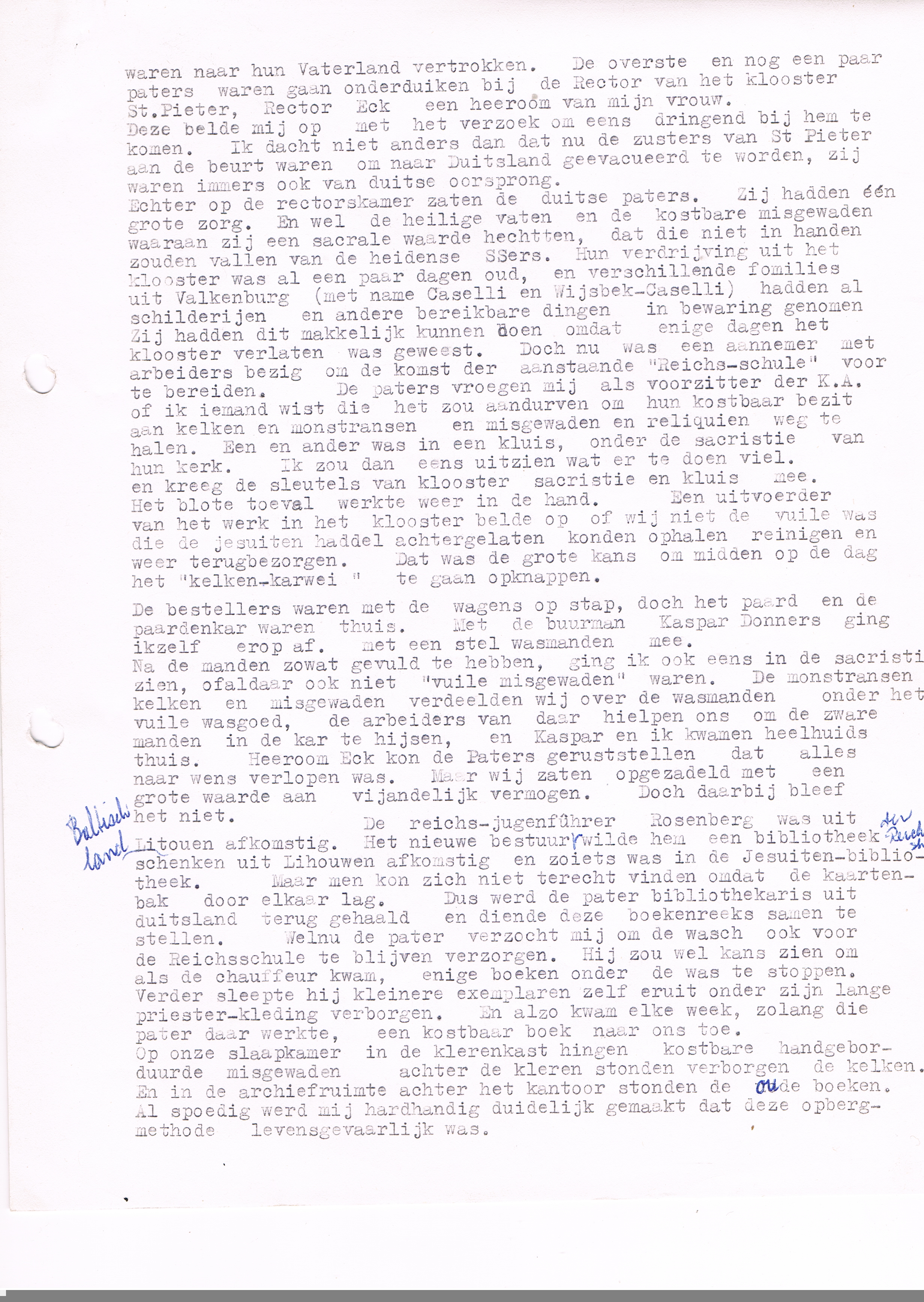Jesuit monastry
Original size 2464 × 3472 pxwere gone back to their native country. The superior and some other fathers went hiding at the rector of St.Pieter’s monastery, Rector Eck, an uncle of my wife.
He called me with the urgent request to visit him. I only thought that the sisters of St. Pieter were now to be evacuated to Germany. They too were of German origin. But the German monks were sitting in the rector’s room. They had only one big concern. Namely the sacred vessels and precious robes, to which they attach a sacred value, should not fall into the hands of the pagan SS.
Their expulsion from the monastery was already a few days old, and several families in Valkenburg (especially Caselli and Wijsbek-Caselli) had already secured paintings and other accessible things. They had been able to do so easily because the monastery had been abandoned for some days. But now a construction firm was there with workers, to prepare the imminent arrival of the Reichsschule. The monks asked me, as a president of K.A., whether I knew someone who would dare to bring out their precious possessions of monstrances, chalices, mass gowns and relics. They were in a safe under the sacristy of their church. I promised to see what could be done and they gave me the keys of the monastery and sacristy.
Pure coincidence collaborated again. A construction supervisor of the work in the monastery called, whether we could not pick up, wash and return the dirty laundry left by the Jesuits. This was the great opportunity to execute the “chalice job” on the bright day. The vans were all on the road, but the horse and the waggon were at home. My neighbor, Kaspar Donners, and me myself, went there, equiped with some laundry baskets. After we had the baskets almost full, I also went to the sacristy to see if there were not “dirty liturgical vestments” too. We put the monstrances, chalices, and liturgical vestments under the dirty clothes, and the workers helped us to hoist the heavy baskets on the waggon and Kaspar and I came home unharmed. Uncle Eck could calm the fathers, that everything had gone according to their wishes. We however were saddled with a great value of “enemy fortune”. But that was not yet all.
The Reichsjugendführer Rosenberg came from Lithuania. The new board (of the Reichsschule) wanted to give him a precious book collection from Lithuania and there was something like that in the library of the Jesuits. But they could not find anything, because the index card box was mixed up. So the Father Librarian was brought back from Germany. He had to assemble these books. Well, this priest asked me to continue to wash the laundry of the Reichsschule. He said to be able to hide some books under the clothes when the driver would come.
He also smuggled out small books himself, hidden under his long robe. And so every week, as long as the Father worked there, a precious book came to us. In the wardrobe in our bedroom hung precious hand-embroidered chasubles, behind our clothes the chalices were hidden. And in the archive room behind the office stood the old books. It soon ruggedly became clear to me that this storage method was life-threatening.
Pierre Schunck


